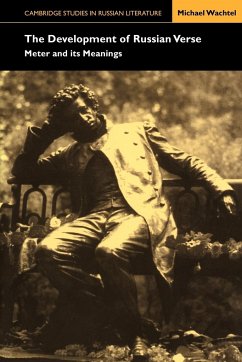
The Iliad
A Commentary: Volume 5, Books 17-20
Herausgeber: Edwards, Mark W.
Versandkostenfrei!
Versandfertig in 1-2 Wochen
67,99 €
inkl. MwSt.

PAYBACK Punkte
34 °P sammeln!
This is Volume Five of the major six-volume Commentary on Homer's Iliad now being prepared under the general editorship of Professor G.S. Kirk. Volumes I and II, published in 1985 and 1990 respectively, were edited by Professor Kirk himself. Like its predecessors, the present volume (the first to be edited by one of Professor Kirk's four collaborators) consists of four introductory essays (including discussions of similes and other features of narrative style) followed by the commentary. The Greek text is not included. This project is the first large-scale commentary on the Iliad for nearly on...
This is Volume Five of the major six-volume Commentary on Homer's Iliad now being prepared under the general editorship of Professor G.S. Kirk. Volumes I and II, published in 1985 and 1990 respectively, were edited by Professor Kirk himself. Like its predecessors, the present volume (the first to be edited by one of Professor Kirk's four collaborators) consists of four introductory essays (including discussions of similes and other features of narrative style) followed by the commentary. The Greek text is not included. This project is the first large-scale commentary on the Iliad for nearly one hundred years, and takes special account of language, style, and thematic structure as well as of the complex social and cultural background to the work.














